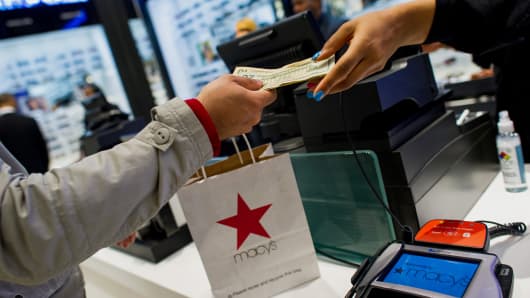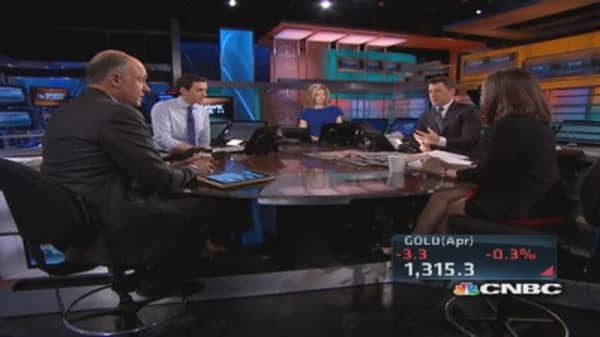Such events can certainly impact retail numbers, either directly or via the context with which we approach them. "When consumers are highly uncertain about their economic prospects and concerned about risk, it can affect their willingness to spend," Edward Fox, director of theJCPenney Center for Retail Excellence at Southern Methodist University, recently told CardHub.
The calendar. The holiday-shopping season can last 26-32 days, depending on where Thanksgiving falls on the calendar. It was 26 in 2013, which means people had nearly 20 percent fewer days to buy stuff than the prior year.
You can't really expect as much spending in such a shortened time frame and that doesn't necessarily indicate that a company or sector is trending downward.
(Read more: A 'tsunami' of store closings expected to hit retail)
The stock market. Consumers spend more when the holiday-shopping season is preceded by a strong year for the stock market, according to Robert Blattberg, professor emeritus of marketing with Northwestern University's Kellogg School of Management. However, market-driven consumer spending isn't guaranteed to last long, especially if there is a correction due to flawed fundamentals.
Customer late fees. Roughly half of the major retailers that offer financing use a feature known as deferred interest. This allows them to retroactively assess finance charges to a customer's entire original purchase amount if they miss a single payment or have the tiniest of balances remaining at the end of the prescribed introductory period.
Practices like deferred interest clearly aren't long for this world as the Consumer Financial Protection Bureau continues its crackdown on opaque, predatory practices across the realm of personal finance. Late last year, the CFPB ordered GE Money to refund $34.1 million to customers who used its CareCredit Card due to the presence of deferred interest.
(Read more: Without rebirth, malls face extinction)
That means companies relying on deferred interest to make their 0-percent financing offers profitable are currently benefiting from artificially-enhanced revenue that is not sustainable in the long term.
— By Odysseas Papadimitriou
Odysseas Papadimitriou is CEO of the personal-finance websites CardHub.com andWalletHub.com. He previously served as a senior director at Capital One.




